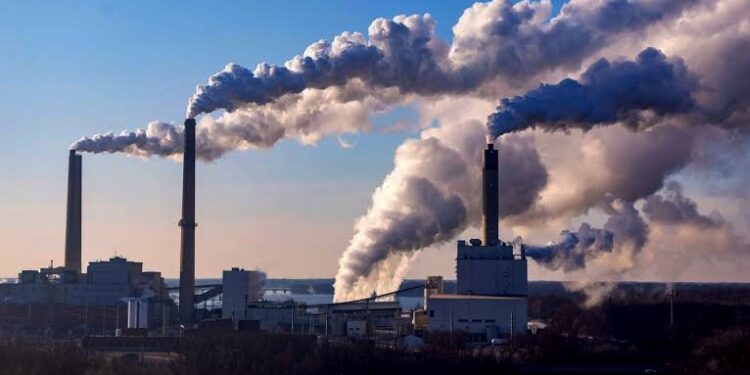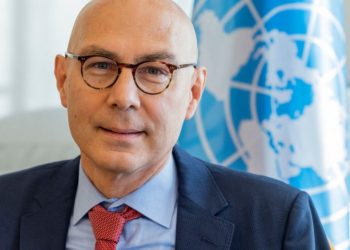The United States has pulled out of an international climate deal in which wealthy nations pledged billions to help a few developing countries transition from coal to cleaner energy sources, according to an announcement made Thursday by one of the affected nations.
South Africa confirmed receiving official notice of the U.S. withdrawal from the International Partners Group (IPG), a coalition of rich countries supporting energy transitions in South Africa, Indonesia, Vietnam, and Senegal. This group includes nations such as the U.K., Germany, France, Italy, Canada, Japan, Norway, Denmark, and the European Union.
The decision, which took immediate effect, meant that the U.S. exited its agreements with South Africa, Indonesia, and Vietnam, said Chrispin Phiri, spokesperson for South Africa’s Foreign Ministry. However, Washington had not committed any funding for Senegal’s transition, leaving other IPG members responsible for those contributions.
South Africa had been expecting over $1 billion in U.S. investment commitments to help phase out its coal-fired power plants in favour of renewable energy. A statement from President Cyril Ramaphosa’s office confirmed that these expected funds would no longer be coming due to the U.S. withdrawal.
Phiri also revealed that grant projects in South Africa, previously financed and in various stages of planning or execution, had been scrapped as a result of the U.S. decision.
Indonesia was also affected by the U.S. move. Fabby Tumiwa, executive director of the climate-focused Institute for Essential Services Reform, said Washington had terminated future financing for Indonesia’s energy transition, which had been provided through the U.S. Department of Energy and the United States aid agency.
Despite the U.S. withdrawal, officials assured that other countries in the IPG remained committed to their pledges.
“South Africa remains steadfast in its commitment to achieving a just and equitable energy transition,” said Joanne Yawitch, the head of the Just Energy Transition Project Management Unit in South Africa. “All other IPG partners remain firmly committed.”
U.K. Climate Envoy Rachel Kyte, who was attending an energy conference in South Africa, described the U.S. departure as “regrettable” in an interview with News24.
This marks another step by President Donald Trump to remove the U.S. from international climate agreements. In January, he signed an executive order withdrawing from the Paris Climate Accord, a landmark global pact aimed at tackling climate change.
That agreement seeks to cap long-term global warming at 2.7 degrees Fahrenheit (1.5 degrees Celsius) above pre-industrial levels. If that target cannot be met, nations aim to at least prevent temperatures from rising beyond 3.6 degrees Fahrenheit (2 degrees Celsius).
South Africa became the first country to sign a just energy transition agreement at the 2021 United Nations climate summit. Before the U.S. withdrawal, it had secured $13.8 billion in pledges. Indonesia and Vietnam followed by signing their own multi-billion-dollar deals in 2022.
The goal of these agreements is to help developing nations that depend on coal for economic stability transition to green energy at a manageable pace. Many of these nations lack the financial resources and infrastructure to make an abrupt switch. South Africa, Africa’s most industrialized country, still generates over 80% of its electricity from coal. Meanwhile, fossil fuels account for nearly all of Indonesia’s energy consumption, with coal making up 60% of its supply.
According to ClimateWatch, an organization that tracks climate change data, South Africa, Indonesia, and Vietnam rank among the top 20 greenhouse gas emitters in the world.



































